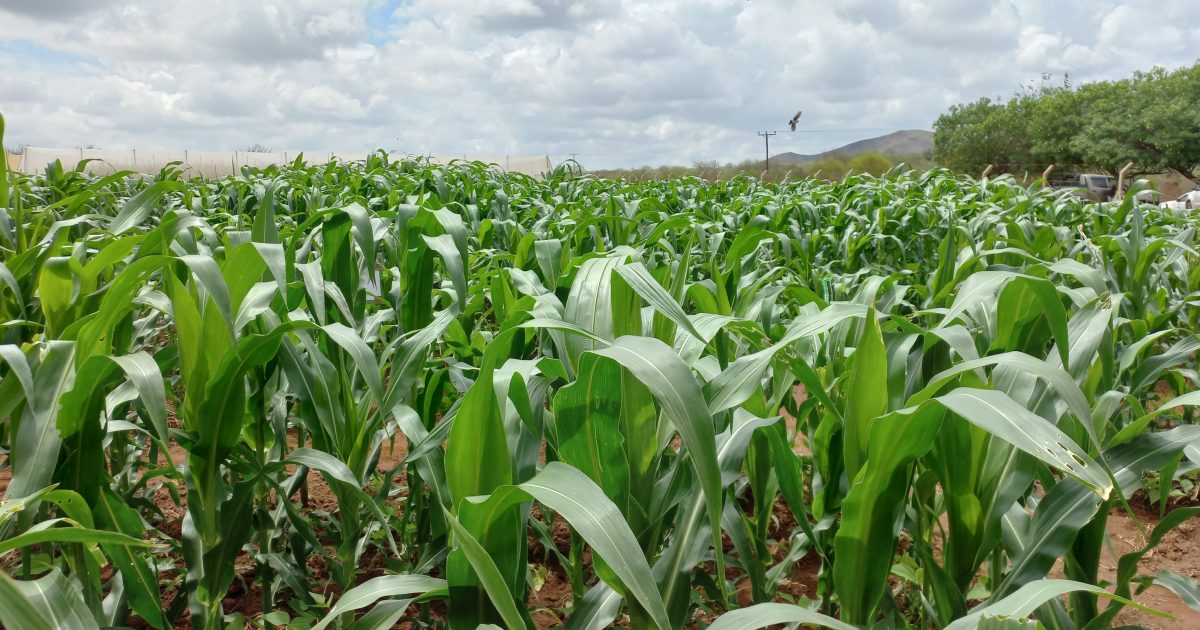Experts want Counties to scale up and accelerate the adoption of recently developed disease and pest control technologies to realize better yields this season.
The agricultural scientist want farmers to embrace the techniques of containing the Maize lethal necrosis disease (MLND) and Fall Armyworm (FAW) control technologies which were found to be effective in the just concluded and certified research.

The technologies are there and have been developed through research especially MLND and FAW resistant varieties and environmentally friendly bio pesticides but many farmers have little information on management.
According to the experts who brought stakeholders involved in the MLN and FAW research, seed companies as well as Senior County Officials from the Ministry of Agriculture, there are opportunities that should be harnessed such as the mobile phone technology and emerging digital innovation platforms for disease and pest surveillance to effectively disseminate research outcomes and agricultural related information to farmers.
Speaking during the one day workshop Dr. Hugo De Groote, a Principal scientist and agricultural economist with International Maize and Wheat Improvement Center (CIMMYT) in Kenya said that in order to protect agri-food systems from devastating effects of pest and disease, there is need for employ strategies on plant health management.
He explained that a pilot study on MLN and FAW done in Embu and Kakamega at the end of last year found that although farmers are aware and can identify major pest problems, they lack information on appropriate control methods.
Dr. Hugo explained that the study that saw 102 women and 94 men participate from the two regions found that women tend to depend more on their own labour such as uprooting (MLN) and handpicking eggs and worms (FAW), and have limited information on resistant varieties (MLN) while the men are likely to invest in prevention through pesticides.
According to the study, there is a need to develop gender-responsive approaches to FAW and MLN, not only to deliver information, but also propose affordable control methods for women as well as men.
“Women estimate losses on MLN are much higher (56%) than men (17%) as they would rather use their own labor instead of investing in resistant seed or pesticide with the major control methods being uprooting affected plants” Dr. Hugo said.

The Scientists said over the last five year the invasion of FAW is most worrying with 59 percent of communities indicating its problem is increasing while for the MLN , half of the communities indicated it is decreasing, and 34 percent saying it has remained the same
Dr. Hugo recommended that farmer groups and mobile phones are viable ways for agricultural extension, as are radio and, increasingly, TV and thus the need of linking farmers with the existing extension services on pest problems
Dr. Zachary Gitonga, a research consultant at CIMMYT said that the shortage of extension staff calls for innovation, adaptation and adoption of available digital platforms.
“ The role of extension is very important in surveillance, monitoring, reporting, diagnosis and management of pests and diseases but with the extension to farmer ratio standing at 1:1100 against the recommended 1:400 and with some counties going as high as ratio of 1:2000, the use of technology can be used to overcome extension staff shortage”, he said .
Dr. Gitonga explained that the status of MLN prevalence is low in central and western region counties but there was still a concern in Kisii, Nyamira, Nakuru, Narok and Bomet Counties while that of FAW was very high in many counties with reduced impact on yields.
“There are MLN and FAW resistant seed varieties available but farmers are not aware. Bio pesticides are available for MLND vectors and FAW control but not readily available and accessible to farmers and therefore elaborate Integrated Pest Management (IPM) packages for FAW control that are available should be made available and farmers made aware and trained”, he said
Dr. Gitonga added on the need to address the knowledge gaps and disseminate research findings to farmers with proper packaging of tips from researchers.
Lynnette Echessa, the Nakuru County Principal Agricultural Officer said that in order to harness the potential of ICT in Agriculture, Nakuru had established a first of its kind farmers call Centre that provide farmers with real time extension information,
“The call Centre has been able to strengthen the linkage between farmers and their extension officers and hence complement the mainstream extension system for increased farm productivity, food and Nutrition security and incomes at farm level.
Bomet County Agricultural Minister Rosa Bett said as one of the counties affected by both the FAW and MLN, the workshop was necessary as she had learnt on the need to train farmers to be able to identify the disease before they reach the larvae stage.

Bomet , she explained, had recently been invaded by the African Army Worm which is almost similar to the FAW but quick surveillance and response that was fast helped to address the situation .
Bett specifically said farmers were ready to embrace the new varieties that are tolerant to FAW and MLN and that they were yearning to get them and start planting as soon as the seed companies produce and they are available to them
“We will have demo plots in order for the farmers to buy in and see the new varieties working and I want to believe that as a country we can be able to improve our crops and yields”, she said
Bett challenged the national government to also look at alternatives of the rain fed farming which she termed important as it can help in adjusting planting seasons accordingly.
“We do not want to depend on rain fed and also the weather, we should implement and invest more on water and we have a lot we can do in our natural environment. If we are able to provide water throughout, the challenges of FAW and African army worm will be addressed”, the Minister said
CIMMYT and Kenya Agricultural Livestock Research Organisation (KALRO) together with other partners have already had promising FAW tolerant hybrids. Three FAW tolerant hybrids FAWTH2001, FAWTH2002, FAWTH2003 have already been announced and have been released in Kenya, South Sudan, Zambia, Angola and Malawi while MLN variety SC DUMA 439 and MH 02 (Taji) are drought tolerant.
Maize is one of the main crops produced in the country and it is also a staple food for the Kenyans. According to KALRO, , the maize requirement and projections for 90 kgs bag has been rising from the 1950s when it stood at 6,077,000 , in 2022 standing at 50,000,000 with a population of 56.2 million, and in 2050 will be at 85,000,000 with estimated population of 84.7 million.
By Wangari Ndirangu





